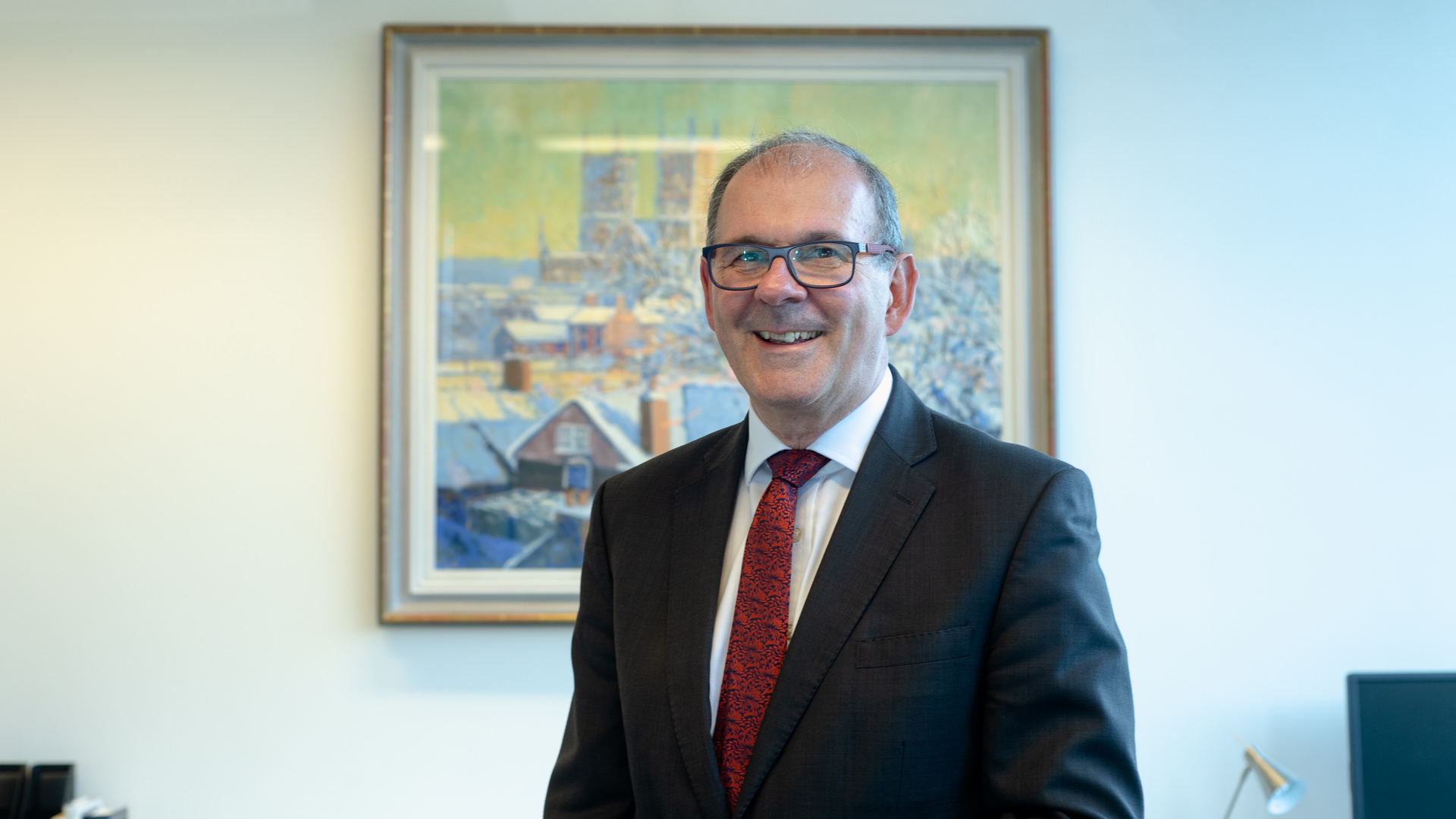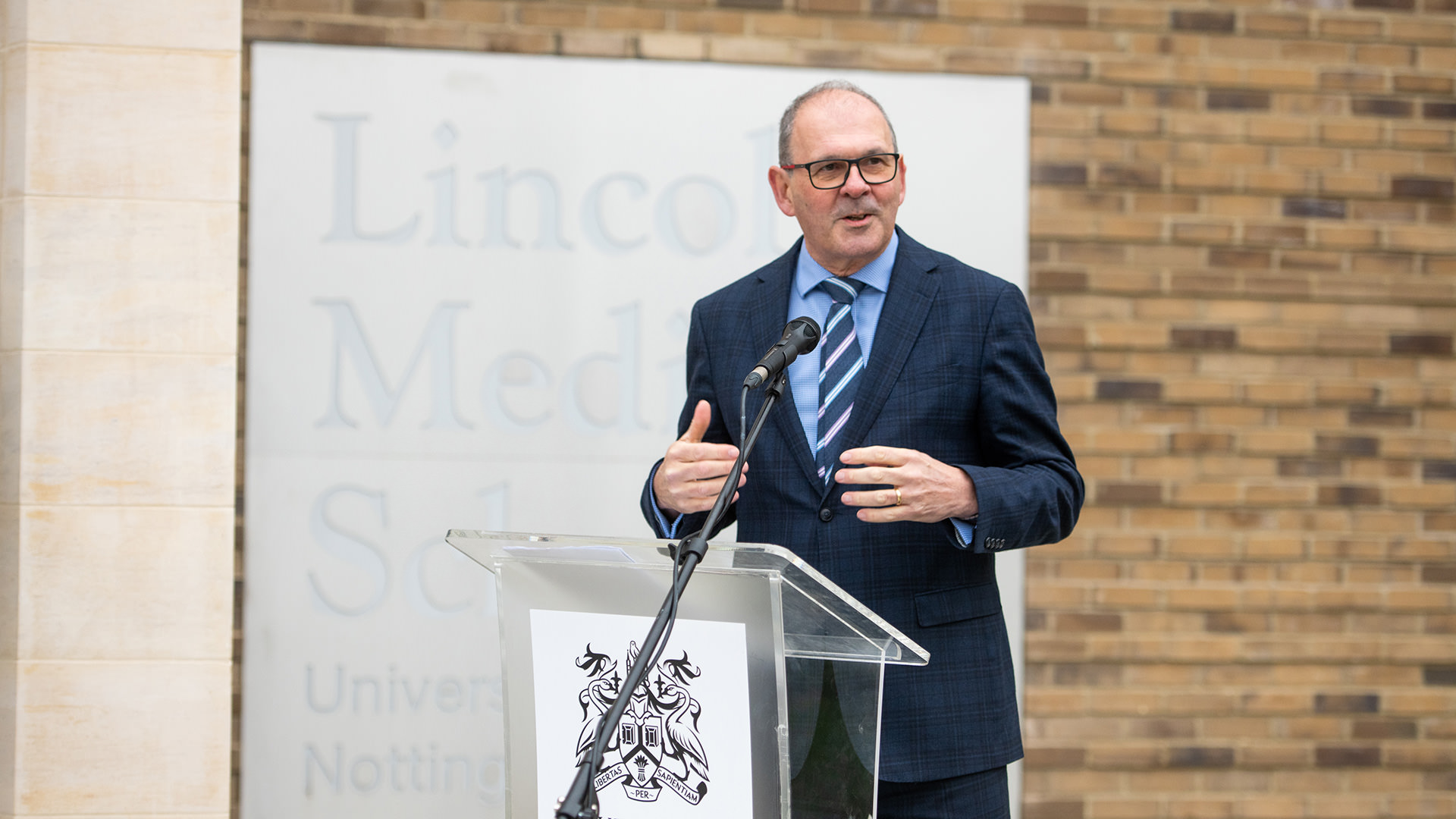I am thrilled and honoured to have been asked to take on the role of chair of GLLEP.
It is an incredibly exciting time for Lincolnshire as we discuss devolution, attract and create new businesses and jobs, and develop critical infrastructure.
It is important we all play our part. Growth and success for the region cannot be achieved by any one or even a few institutions, and I look forward to working with partners across the region collectively.
I would like to thank Pat Doody for his last three years as chair and eight years as a member of the Board. Both Pat and before him Ursula Lidbetter, together with Ruth Carver as CEO and the wider team, have given the Board a clear strategy to help the County achieve economic growth.
I would also like to welcome to the LEP Board four new non-executive directors drawn from across the private third sectors; Liam Scully, CEO of Lincoln City FC, Shaun Povey, Head of Strategic Planning & Projects at Siemens, Nikki Cooke, CEO of LIVES, and Mark Webb, CEO of Grimsby-based business support group E-Factor.
Their expertise will be invaluable to the region and help cement that strong partnership of private, public and education leaders which has been so successful.
At the University of Lincoln, we are now beginning to implement our strategic plan, in which our purpose and vision aligns well with that of the GLLEP.
We want to help transform lives and communities, attract talent from around the globe to create for Lincolnshire a virtuous circle of opportunity, prosperity, and economic growth. As a university, and as enterprise partners, we need to be transformative, enabling a prosperous region in an inter-connected world.
Much like the University, the GLLEP’s success has been underpinned by a strong partnership of private, public and education leaders. It has unlocked investment worth over £400 million for transformational schemes and is fundamentally improving the economy and infrastructure of Greater Lincolnshire.
It is therefore disappointing that the Chancellor in his budget last week stated that he was minded to transfer some responsibilities away from LEPs across the country to local authorities away from the voice of business.
One of my first challenges, will be to Chair the Board through this possible short term disruption to ensure that Lincolnshire can continue to deliver investments that transform the lives of those who live here.
Together with our many local partners, who are increasing and diversifying, Lincolnshire has made significant progress in raising the aspiration and profile of our collective economic ambitions and it is imperative that the partnership work led by the LEP continues to support economic growth in one form or another.
LEP programmes have delivered economic growth for well over a decade now and I intend to ensure that this continues at a pace for our remarkable region.
The LEP’s key collective achievements have been refining its strategy using ‘game changers’ as part of the area’s economic focus. The growth in the four game changing areas – food, defence, energy and the freeport – has been nothing short of exceptional but we must continue create jobs and invest in key assets.
Greater Lincolnshire can lead the country’s efforts to innovate and grow the skills in these critical areas and other sectors
The GLLEP will continue to support the Greater Lincolnshire bid for devolution with the increased powers that would bring.
Our consultation with the business community last year showed that the majority support the principle of devolution, and in the spring Budget the Chancellor committed to further discussions on devolving power and money to the regions.
There was also an announcement that new Levelling Up Partnerships worth over £400m will support regeneration in 20 of England’s areas most in need of levelling up between now and 2025. Boston is one of the beneficiaries and we look forward to seeing the results of this investment.
As an engineer, I believe my deep knowledge of the sector, together with business acumen and existing high-profile partnerships that are far reaching, will be an advantage as we promote and strengthen the manufacturing and engineering heritage of Greater Lincolnshire.
Since 2010 the LEP has created over 3,500 jobs and 800 new businesses, and delivered 75 major growth projects and programmes.
I’m also particularly proud of our Careers Hub where more than 100 Enterprise Advisers from across business and industry have supported over 8,500 learners, apprentices and students in their career choices.
We are 180+ leaders, and growing, we must continue to harness our economic ambitions for Greater Lincolnshire and Rutland. We know it is a great place to live, work, and invest, it is my responsibility as chair of the GLLEP to help ensure the world knows this too.
MyLocal Lincolnshire is the new home of The Lincolnite. Download the app now







